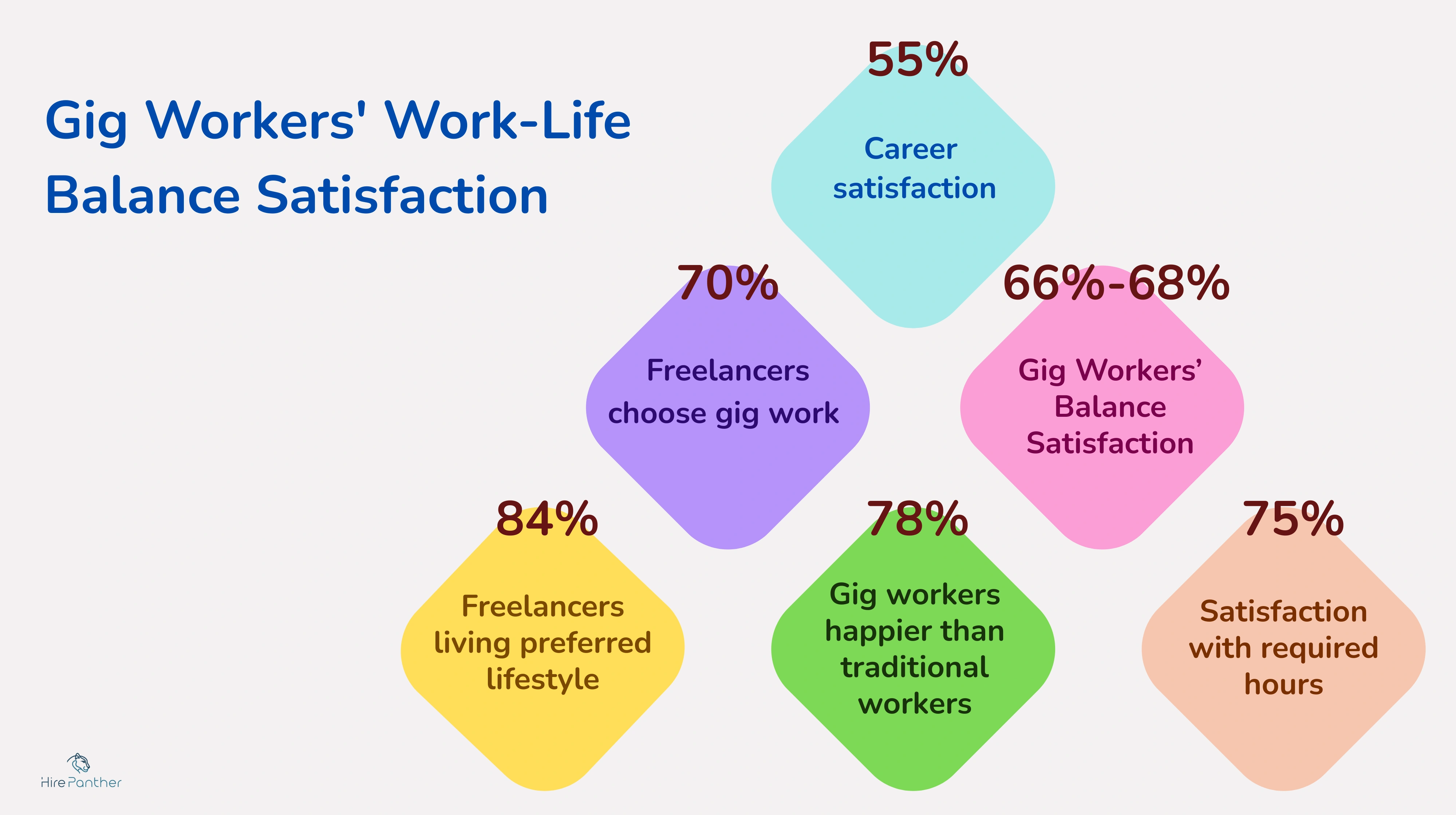What Canadian Gig Workers Really Think About Their Work-Life Balance
- 30 Aug, 2025

Introduction: Work-Life Balance in Canada’s Gig Economy
The rapid rise of gig work in Canada has reshaped traditional employment paradigms, placing work-life balance at the forefront. But how satisfied are Canadian gig workers with their work-life balance?
In this article, we delve into survey data and real-life experiences to uncover the genuine perspectives of Canadian gig workers on balancing their professional and personal lives.

Work-Life Balance: What the Surveys Reveal
Recent surveys conducted among Canadian gig workers highlight compelling insights:
- 72% report a significantly improved work-life balance compared to traditional employment.
- 68% appreciate the freedom to manage their work schedules.
- 60% mention lower stress levels as a key benefit of freelance work.
These statistics underscore the positive impact gig work can have on lifestyle quality and flexibility.
Top Benefits Gig Workers Enjoy
1. Flexibility and Autonomy
Most gig workers highlight flexible scheduling as the primary advantage, allowing them to better integrate work with personal life.
2. Reduced Commuting Time
Remote and localized gigs eliminate long commutes, significantly improving daily quality of life.
3. Increased Family and Leisure Time
Greater control over working hours enables gig workers to spend more meaningful time with family and engage in hobbies and leisure activities.

Common Challenges Facing Gig Workers
Despite many positives, gig workers encounter several challenges impacting their work-life balance:
- Income Instability: Unpredictable income flow can lead to stress and uncertainty.
- Boundaries: Difficulty setting clear boundaries between work and personal time.
- Isolation: Lack of traditional workplace interactions leading to feelings of isolation.

Strategies Gig Workers Use to Improve Balance
Canadian gig workers adopt effective strategies to manage challenges:
- Routine and Structure: Establishing clear work hours and dedicated workspace.
- Networking and Community: Engaging with co-working spaces and professional groups to maintain social interaction.
- Financial Planning: Diversifying income sources and careful budgeting to manage income fluctuations.
Case Studies: Real-Life Experiences
Jessica, Freelance Graphic Designer, Toronto
Jessica shares how freelancing has significantly improved her quality of life, allowing her to prioritize family and personal health without compromising career goals.
Raj, Tech Freelancer, Vancouver
Raj emphasizes the need for self-discipline in maintaining boundaries to avoid burnout and stay productive.

What Gig Platforms and Employers Can Do
To further support gig workers’ work-life balance, platforms and businesses should:
- Offer flexible work arrangements and clear communication tools
- Provide resources for mental health and wellness
- Facilitate community-building opportunities and professional networking
Conclusion: Achieving Sustainable Work-Life Balance
Gig work offers significant potential for improved work-life balance, yet it requires careful management of challenges and proactive strategies. Canadian gig workers who successfully navigate these aspects can achieve fulfilling careers and enhanced lifestyles.
Stay informed about Canada’s gig economy - subscribe for ongoing insights and resources!
